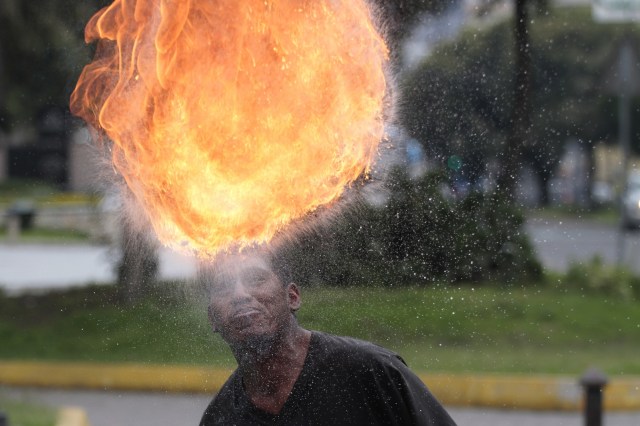Franklin JÃCome/Zuma Press/PA Images

March 2018 has been a good month for the wind power industry. On the 17th, output from UK wind farms hit a record high – supplying 37% of national demand. In the same week, the Swedish company Vattenfall won a contract from the Dutch government to build the world’s first subsidy-free wind farm.
So, that’s the decarbonisation of the economy sorted – we just need to keep on with all that cheap and cheerful wind and solar. Oh and the electric cars, of course – another dead cert for the clean economy of the near future.
Obviously, there’s still a lot of work to do on how we manage the intermittency of an increasingly renewable energy mix. That said, we’ve managed so far – and we’re getting better at it all the time.
But while we may be on track for decarbonising the power sector and road transport, several other chunks of our energy demand pose a much tougher challenge.
In a superb article for Bloomberg New Energy Finance, Michael Liebreich mentions industry, chemicals, aviation and shipping as examples, but his focus is on what looks like the toughest challenge of the lot – heat.
Currently the UK and much of Europe relies mainly on natural gas for its heating and hot water. How do we decarbonise that? The most obvious approach is to replace our boilers with electric heaters. However, this would greatly increase the demand that would have to be supplied by low carbon sources of power – it would also increase the seasonal variation in that demand. Liebreich explains why this is such a big deal:
“Even in a normal year, the U.K.’s winter heating load – which is practically zero in summer months – reaches peaks six times as high as the country’s electricity load, and it can cycle up and down by a factor of three in just a few days.”
In other words, to decarbonise our heating systems by electrifying them, we’d need a whole lot of extra low carbon generating capacity, which we’d only need for some of the year – i.e. a big capital investment with a very poor rate of return.
Note that this isn’t a problem everywhere:
“In sunny climes, the combination of solar PV plus batteries should be able to cover a very substantial proportion of power and heating (or more likely cooling) needs – solar PV only needs a few days’ worth of storage, and battery costs are following it down a very steep experience curve, even in the absence of breakthroughs in battery chemistry…
“However, anywhere north of around 40 degrees latitude, while solar power may generate affordable power in summer, its output drops dramatically in winter. The solar panels on my roof in London produce one thirteenth of the power in December that they produce in June.”
It’s an irony that the coldest countries may have the toughest time doing their bit to stop global warming. With wind power providing only partial compensation for the lack of sunshine, the electrification of heat looks like a non-starter. So does that mean that these parts of the world are doomed to dependency on natural gas – and whoever controls its supply?
Not necessarily – there are various solutions, to which Liebreich provides an excellent guide. These include advanced energy efficiency, district heating networks and heat batteries. The challenge is that they require infrastructure investment on a somewhat daunting scale.
The feasibility of such a program depends on high-level strategic coordination – to ensure that synergies between different forms of infrastructure investment are fully exploited. The question is whether governments have the vision and capacity to make it happen. They must have had at some point, otherwise the national and international infrastructure that supports the use of natural gas to heat our homes and places of work wouldn’t exist.
If we want to replace those networks with an advanced energy system fit for the 21st century, then we need some equally advanced politicians.










Join the discussion
Join like minded readers that support our journalism by becoming a paid subscriber
To join the discussion in the comments, become a paid subscriber.
Join like minded readers that support our journalism, read unlimited articles and enjoy other subscriber-only benefits.
Subscribe